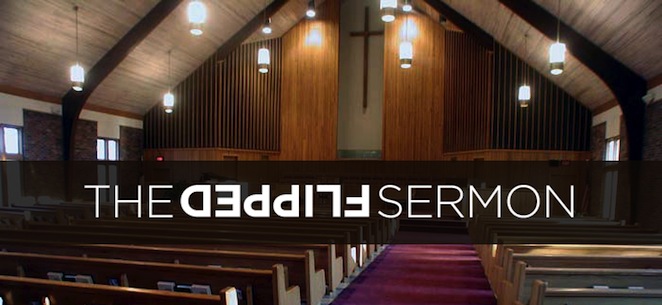
A few weeks ago, Shawn Coons posted a link to this article, “Flipping Churches” on Facebook. No, don’t read “Flipping” as a derogatory replacement for the F-word, but rather as a verb. The article talks about the flipped classroom, an idea that is used in education more and more. The article describes the flipped classroom like this:
The “flipped classroom†is the idea that instead of learning about a topic in class and then practising the topic at home (for example, at school your teacher explains how to do long division and at home you answer problems on long division) students learn about a topic at home and then practice the new learned technique in class.
And the article asks how this idea might be used in churches, specifically with the sermon. Shawn posted the money quote from that article as well:
“Imagine that instead of coming to church, listening to a sermon for [insert your churches sermon length] ending with a few questions which no one talks about (except maybe a brief mention over coffee), the congregation listened to the sermon before coming (it could even be a famous preachers sermon or the pastor could record one). Once they turn up to the meeting, everyone discussed the implications for themselves, prayed for each other and perhaps, even, left the church building and put their ideas into action.”
While I certainly appreciate a well-crafted sermon, and am glad when I am able to deliver one, I keep thinking that preaching needs to move into new and more participatory models if the church is going to continue to be relevant to people today. Why is the church one of the last places that still puts an emphasis on the lecture-style of teaching? Why do we assume that our parishioners still want this type of sermon when you can often see the boredom and detachment on their faces when they’re listening to sermons? I love this idea of the flipped sermon, and am hoping to try it in the next couple months.
I think this allows the preacher to wrestle with the text, to listen to the Spirit and have a sense of what God might want to say to that specific congregation…but then takes it further and asks each person sitting there in the pews to have to interact with the message and the text, to have to imagine how they might be able to live out that specific text, and to make themselves aware of the Spirit’s nudging in their lives.
Do you think you would be able to preach a flipped sermon in your context? What other ideas have you tried to bring creativity and new ideas to your sermons?